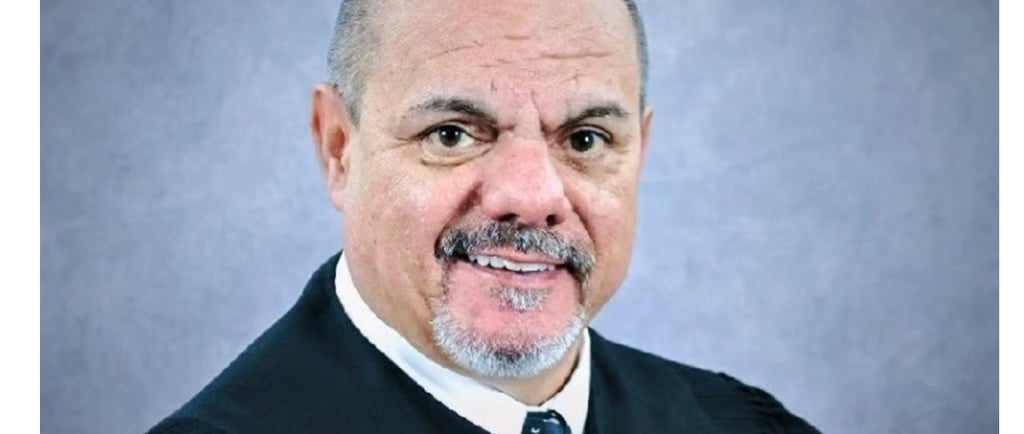Dr. Jason Boyle Seeks Disqualification of Judge’s Counsel in Oconee County, SC, Criminal Contempt Trial
Angry Judge used judicial power to seek vengeance on critical citizen.
OCONEE PROBATE COURT10 CIRCUIT COURT


Dr. Jason Boyle Seeks Disqualification of Judge’s Counsel in Oconee County, SC, Criminal Contempt Trial
March 30, 2025 (Columbia, S.C.) — In a potentially groundbreaking development, Dr. Jason Michael Boyle, Ph.D., acting pro se, has filed a sweeping Motion to Disqualify Counsel and Clarify Parties in the South Carolina Court of Appeals. The motion—submitted on March 30, 2025—contends that Oconee County Probate Judge Danny Singleton must be replaced as the named respondent by the State of South Carolina, given that criminal contempt is classified as an offense against the State, not the issuing judge. Notably, the motion indicates that Attorney General Allen Wilson was copied on the filing, along with various local officials.
Background of the Case
Dr. Boyle’s appeal arises out of a criminal contempt ruling by Judge Danny Singleton, following which Boyle was incarcerated for 40 days. He was subsequently released pending the outcome of this appeal. During an earlier hearing on September 12, 2024, Circuit Judge Lewton McIntosh openly characterized the proceedings as a “criminal trial,” reinforcing the argument that contempt in this context must be treated as criminal rather than civil. According to Boyle, the very nature of a criminal contempt charge makes the State of South Carolina—not the judge—responsible for opposing his appeal.
Core Arguments in the Motion
Disqualification of Judge Singleton’s Private Attorney
Boyle claims that Judge Singleton’s personal counsel, Jim Logan, cannot lawfully represent the judge in a criminal contempt appeal. Citing In the Matter of Lauren Martel (S.C. Supreme Court, 2024), Boyle argues the adverse party must be the State, which should be represented by the Attorney General or Solicitor’s Office.Clarification of the Respondent
The motion insists that because criminal contempt is “an offense against the State,” South Carolina stands as the proper respondent. Boyle points out that the Supreme Court and Court of Appeals have previously affirmed this principle in other cases, notably Nathan Chambers v. State of South Carolina (2025-000276).Improper Conduct and Sanctions
Boyle further alleges that Attorney Jim Logan was already cautioned about this same issue in the Chambers litigation but persists in defending a judge personally in a criminal appeal. Boyle’s motion asks the Court of Appeals to consider sanctions, asserting that Logan’s continued involvement violates established precedent and runs counter to the South Carolina Rules of Professional Conduct.Waiver of Filing Fees
Since the action is criminal in nature, Boyle also asks that the Court reaffirm Rule 203 of the South Carolina Appellate Court Rules, which generally exempts criminal defendants from paying filing fees. Boyle cites Chambers again, where the Court of Appeals purportedly declined to assess fees for a contempt appeal deemed criminal.
AG Allen Wilson Officially Notified
Integral to Boyle’s motion is the explicit service of documents upon South Carolina Attorney General Allen Wilson, as well as key personnel in his office. By ensuring the Attorney General is placed on notice, Boyle underscores his stance that the State should be handling the appeal, rather than a privately hired lawyer for Judge Singleton.
Broader Legal Significance
If successful, Boyle’s motion could reshape how criminal contempt appeals are processed statewide:
Role of Judges in Criminal Contempt: The motion challenges the idea that a probate judge, or any judge issuing a contempt ruling, can also be a personal litigant in the appellate phase.
Criminal vs. Civil Nature: It reasserts that contempt punishable by jail time—particularly when described as criminal by a circuit judge—belongs under the domain of the prosecutor’s office or the Attorney General, rather than private defense counsel.
Impact on Filing Fees and Representation: A favorable ruling for Boyle would emphasize that those appealing a criminal contempt sentence should not be burdened by filing fees and could require the State to appear as the official respondent in such cases.
Boyle’s 40-Day Incarceration
Central to Boyle’s argument is the fact that he was jailed for 40 days due to Judge Singleton’s contempt ruling. He contends that once an individual’s freedom is at stake, the strict safeguards of criminal procedure must apply—including the proper alignment of parties (State vs. defendant), the right to counsel, and, where applicable, the right to due process. Boyle was released pending his appeal, but the sentencing remains under challenge before the Court of Appeals.
